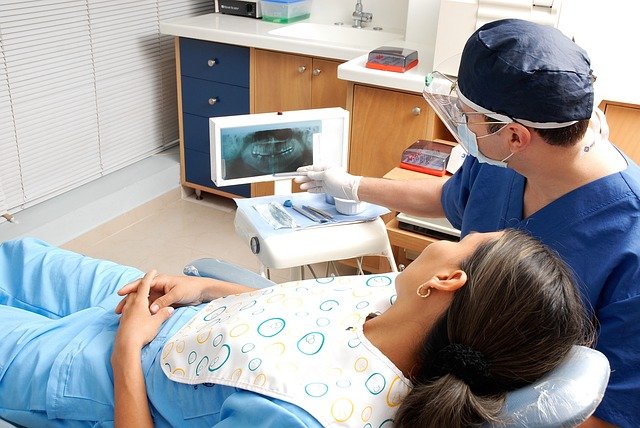Missing Teeth? Explore Your Replacement Choices
Losing one or more teeth can affect your confidence, oral health, and daily comfort. Whether due to injury, decay, or age-related factors, missing teeth are a common concern that many people face at some point in their lives. Fortunately, modern dentistry offers a variety of replacement options designed to restore function and appearance. From permanent implants to removable solutions, understanding the available choices can help you make an informed decision that fits your lifestyle and budget.

Tooth loss is more than just a cosmetic issue. It can impact your ability to chew properly, affect your speech, and even lead to bone loss in the jaw over time. Addressing missing teeth promptly is important for maintaining overall oral health and preventing further complications. The good news is that there are several effective replacement options available, each with its own set of benefits and considerations.
How To Fix Missing Teeth
There are multiple ways to replace missing teeth, ranging from permanent surgical solutions to removable appliances. The best option depends on factors such as the number of missing teeth, your oral health, budget, and personal preferences. Dental implants are considered one of the most durable and natural-looking solutions. They involve surgically placing a titanium post into the jawbone, which acts as an artificial root. A crown is then attached to the post, creating a stable and long-lasting replacement.
Another popular option is a dental bridge, which uses adjacent teeth as anchors to support a false tooth or teeth. Bridges are typically fixed in place and can be a good choice if you have healthy teeth on either side of the gap. Partial dentures are removable appliances that can replace one or more missing teeth. They attach to your natural teeth with metal clasps or precision attachments and can be removed for cleaning.
For those missing all or most of their teeth, full dentures are a traditional solution. These removable appliances rest on the gums and are held in place by suction or adhesive. While dentures have been used for decades, newer options like implant-supported dentures offer improved stability and comfort.
Are Clip-On Dentures Right For You? Pros and Cons Explained
Clip-on dentures, also known as snap-on dentures or overdentures, are a type of removable denture that attaches to dental implants or remaining natural teeth. Unlike traditional dentures that rest solely on the gums, clip-on dentures snap onto special attachments, providing a more secure fit. This design offers several advantages, including improved stability during eating and speaking, reduced movement and slippage, and better chewing efficiency compared to conventional dentures.
One of the main benefits of clip-on dentures is that they can help preserve jawbone density. Because they attach to implants, they stimulate the bone in a way that traditional dentures cannot. This can slow down bone loss and help maintain facial structure over time. Additionally, many users find clip-on dentures more comfortable because they typically require less coverage of the palate, which can improve taste sensation and reduce gagging.
However, there are some considerations to keep in mind. Clip-on dentures usually require at least two to four dental implants, which involves a surgical procedure and healing time. The initial cost is higher than traditional dentures, though many people find the investment worthwhile for the added stability and comfort. Proper oral hygiene is essential, as both the dentures and the implants or attachments need regular cleaning. Some people may also require bone grafting if there is insufficient bone density to support the implants.
Exploring Affordable Smile Solutions: Guide To Clip-On And Removable Options
Cost is often a significant factor when choosing a tooth replacement option. Prices can vary widely depending on the type of solution, the materials used, the complexity of the case, and your geographic location. Traditional full dentures typically range from $1,000 to $3,000 per arch, making them one of the most budget-friendly options. Partial dentures usually cost between $700 and $1,800, depending on the number of teeth being replaced and the materials used.
Clip-on dentures are more expensive due to the need for dental implants. The total cost can range from $6,000 to $30,000 or more, depending on the number of implants required and whether additional procedures like bone grafting are needed. Dental implants for individual teeth typically cost between $3,000 and $4,500 per tooth, including the implant, abutment, and crown. Dental bridges usually range from $2,000 to $5,000 per tooth, depending on the materials and complexity.
| Solution Type | Typical Cost Range | Key Features |
|---|---|---|
| Traditional Full Dentures | $1,000 - $3,000 per arch | Removable, budget-friendly, no surgery required |
| Partial Dentures | $700 - $1,800 | Replaces one or more teeth, removable, clasps to natural teeth |
| Clip-On Dentures | $6,000 - $30,000+ | Attaches to implants, more stable than traditional dentures |
| Single Dental Implant | $3,000 - $4,500 per tooth | Permanent, natural appearance, requires surgery |
| Dental Bridge | $2,000 - $5,000 per tooth | Fixed in place, uses adjacent teeth for support |
Prices, rates, or cost estimates mentioned in this article are based on the latest available information but may change over time. Independent research is advised before making financial decisions.
Many dental insurance plans provide partial coverage for tooth replacement procedures, though the extent of coverage varies. Some plans may cover a portion of dentures or bridges but offer limited or no coverage for implants, which are sometimes considered cosmetic. Payment plans and financing options are often available through dental offices, making more expensive treatments more accessible. Some dental schools and community health centers also offer reduced-cost services performed by supervised students or staff.
Factors To Consider When Choosing A Replacement Option
Selecting the right tooth replacement solution involves weighing several factors beyond cost. Your overall oral health plays a crucial role. For example, dental implants require sufficient jawbone density and healthy gums. If you have gum disease or significant bone loss, you may need additional treatments before implants can be placed. Your lifestyle and daily habits also matter. If you prefer a solution that feels most like natural teeth and are willing to undergo surgery, implants might be ideal. If you want a less invasive option that can be easily adjusted, removable dentures could be a better fit.
Maintenance requirements differ among options. Implants and bridges are cared for much like natural teeth, with regular brushing and flossing. Dentures require removal for cleaning and may need periodic adjustments or relining as your mouth changes over time. Consider how much time and effort you are willing to invest in daily care.
Longevity is another important consideration. Dental implants can last 20 years or more with proper care, while dentures typically need replacement every 5 to 10 years. Bridges generally last 10 to 15 years. Thinking about long-term value can help you make a choice that serves you well for years to come.
Taking The Next Step Toward A Complete Smile
Addressing missing teeth is an important step toward better oral health and renewed confidence. Whether you choose a permanent solution like dental implants or a removable option like clip-on or traditional dentures, the key is finding what works best for your unique situation. Consulting with a qualified dentist or prosthodontist can provide personalized guidance based on a thorough examination of your oral health, lifestyle needs, and financial considerations. With the right information and professional support, you can make a decision that restores both function and appearance, helping you enjoy a healthier, more complete smile.




